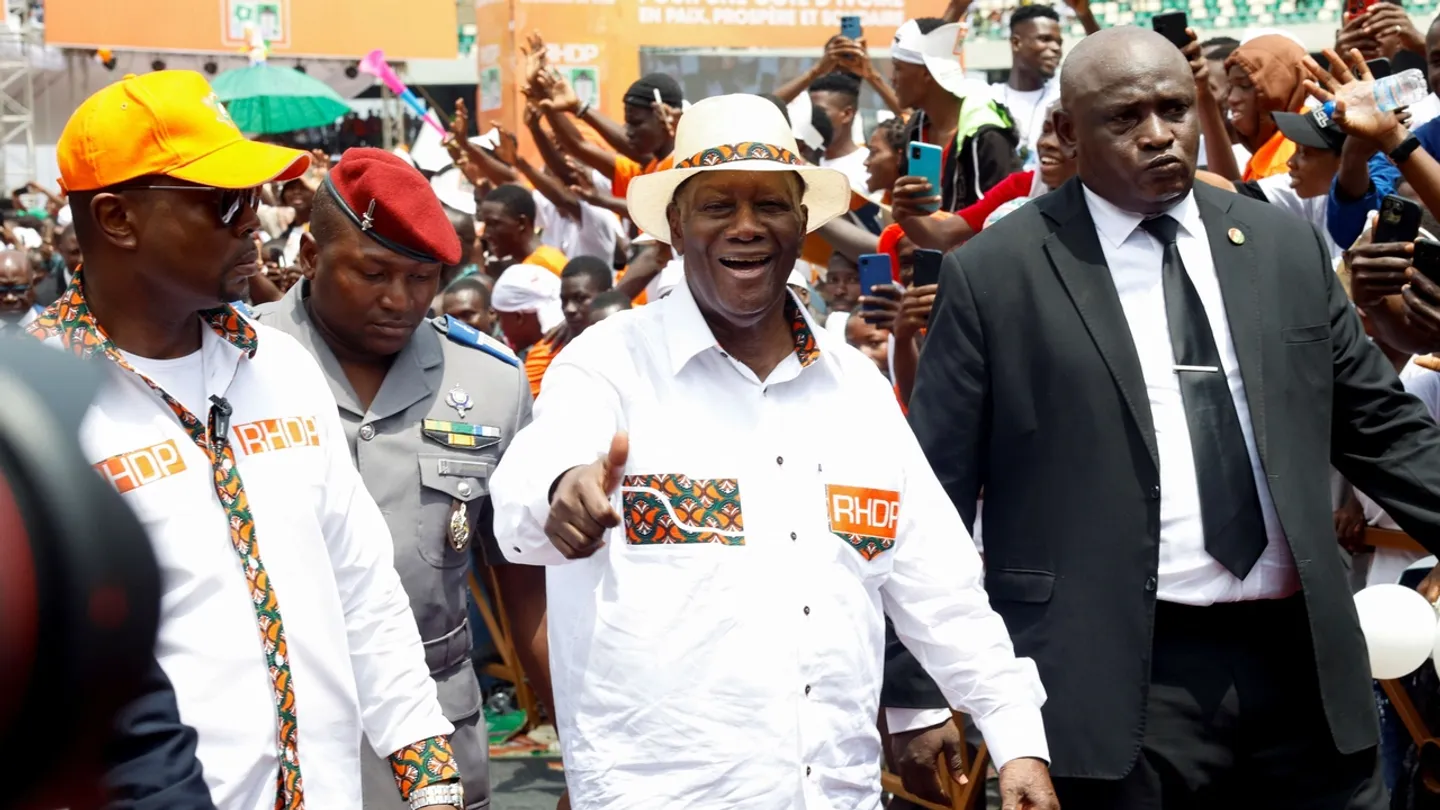
Ivory Coast is entering a tense electoral period as President Alassane Ouattara officially launched his campaign for a fourth term ahead of the October 25, 2025, presidential election.
The campaign began in Daloa, a city considered a traditional opposition stronghold, underscoring the high-stakes nature of the vote. Opposition parties have condemned Ouattara’s candidacy as unconstitutional, heightening political tensions across the country.
At the rally, Ouattara, leader of the ruling Rally of Houphouëtists for Democracy and Peace (RHDP), emphasised his party’s widespread organisational reach.
The RHDP has dominated recent legislative, municipal, and regional elections, winning 137 of 255 National Assembly seats in 2021, 123 mayoral positions in 2023, and 25 of 31 regional councils.
Party officials credit their success to strategic alliances, defections from opposition parties, and Ouattara’s personal appeal.
The opposition, however, is deeply fragmented.
The PDCI and PPA-CI, the country’s main opposition parties, have distanced themselves from candidates seen as aligned with rival factions.
PDCI spokesperson Dr. Bredoumy Soumaila stated of independent candidate Jean-Louis Billon: “He has always wanted to be an independent candidate, let him assume his responsibilities and address the people of Côte d’Ivoire, and we will see in the end what score he will get and if he can negotiate.”
Ahoua Don-Mello, a former PPA-CI executive, was excluded from the party after declaring his candidacy. Meanwhile, former First Lady Simone Ehivet has received backing from Charles Blé Goudé, president of the Cojep party, who urged citizens to vote for her as a vehicle for political change. Analysts suggest that the fractured opposition may inadvertently benefit Ouattara by splitting dissenting votes.
Voter turnout remains uncertain. Past elections have seen low participation or opposition boycotts; in 2015, only around half of registered voters cast ballots, while the 2020 election recorded a 53.9% turnout amid a boycott.
With 8.7 million voters registered in 2025, mobilising citizens disillusioned by political exclusion—particularly supporters of Laurent Gbagbo and Tidjane Thiam—will be critical.
Ouattara’s main goal is a decisive first-round victory, but the candidacies of Simone Ehivet and Jean-Louis Billon could sway reluctant voters, potentially reshaping the electoral dynamics and influencing turnout in this pivotal Ivorian election.



